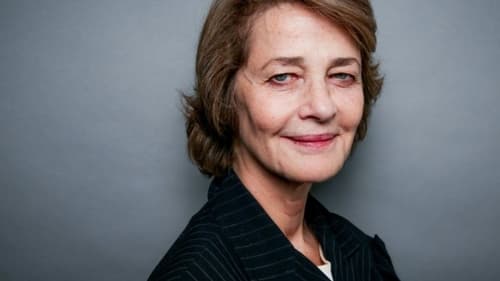
Self (archive footage)
Screen icon Charlotte Rampling has fascinated the world of cinema, fashion and photography with her mysterious and almost inaccessible beauty. A major figure in genre and auteur films, she is unclassifiable: between presence and absence, shyness and audacity, she's always hypnotic, magnetic and fascinating. From her film debut in the mid-1960s in England, to her unconventional career path, through the tragic loss suicide of her older sister that will irremediably mark her acting, this film is a dive into the existential quest of a complex actress, whose every facet is discovered through her roles. Through a conversation with the actress herself, along with personal archives and extracts from her films, this documentary raws a dazzling portrait of her life and career.
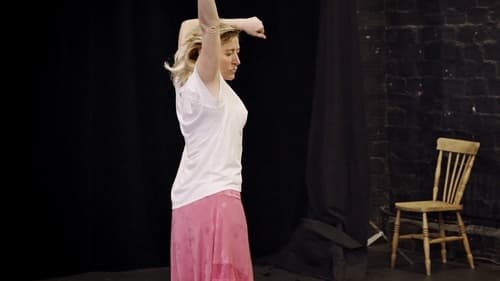
Self (archive footage)
A free and intimate portrait behind the scenes of Valeria Bruni Tedeschi's creation. In front of the camera, she transmits to today’s young actors the memory of the 1980s.

Lui-même

Thanks
The great singing actress Nina Stemme gives a heart-wrenching performance in the title role of Strauss’s blazing one-act drama, adapted from the ancient Greek myth. Patrice Chéreau’s acclaimed production—the last staging he worked on before his death in 2013—also stars Waltraud Meier as Klytämnestra, Elektra’s nightmare-haunted mother, Adrianne Pieczonka as Chrysothemis, her sister, and Eric Owens as Orest, their brother, whose return home brings their family story to a terrifying climax. Esa-Pekka Salonen conducts the monumental and highly influential score.
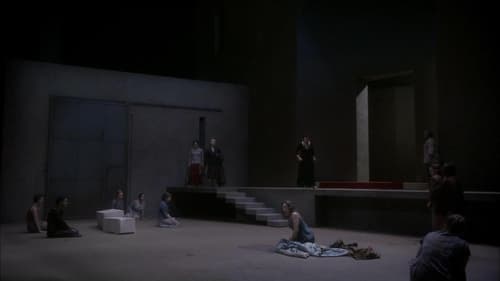
Director
Last production staged by Patrice Chéreau, this Elektra will remain as the main and most striking lyrical event of these last years in Aix-en-Provence. This production is leaded by three amazing singers: the German soprano Evelyn Herlitzius gave a tremendous, never-to-be-forgotten account of the title role, Waltraud Meier portrays a human and chilling Clytemnestra and Adrianne Pieczonka is a fantastic Chrysothemis. Everyone's loneliness and intimate struggles are Patrice Chéreau's favorites theatrical themes. With Esa-Pekka Salonen conducting the Orchestre de Paris, this production of Elektra becomes an unforgettable experience.

Stage Director
Last production staged by Patrice Chéreau, this Elektra will remain as the main and most striking lyrical event of these last years in Aix-en-Provence. This production is leaded by three amazing singers: the German soprano Evelyn Herlitzius gave a tremendous, never-to-be-forgotten account of the title role, Waltraud Meier portrays a human and chilling Clytemnestra and Adrianne Pieczonka is a fantastic Chrysothemis. Everyone's loneliness and intimate struggles are Patrice Chéreau's favorites theatrical themes. With Esa-Pekka Salonen conducting the Orchestre de Paris, this production of Elektra becomes an unforgettable experience.

Self

Self
In this documentary, Stéphane Metge, friend and collaborator of Patrice Chéreau, offers a portrait of the artist through archives of his plays, films, and interviews.
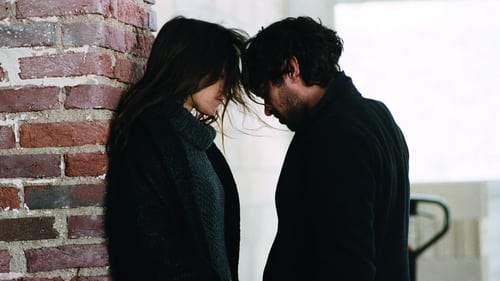
Screenplay
The solitary Daniel and Sonia share an uneasy love/hate relationship. Daniel's life is disrupted by the appearance of a stranger that proceeds to insinuate himself in his life. The man's persistence takes its toll on Daniel and Sonia, leaving Daniel alone with nagging questions of "Why?"

Director
The solitary Daniel and Sonia share an uneasy love/hate relationship. Daniel's life is disrupted by the appearance of a stranger that proceeds to insinuate himself in his life. The man's persistence takes its toll on Daniel and Sonia, leaving Daniel alone with nagging questions of "Why?"

Director
The legendary Patrice Chéreau (Bayreuth Jahrhundertring, Queen Margot, Intimacy) directed this production of Richard Wagner's psychological music drama Tristan und Isolde at the Teatro alla Scala in 2007. It stars Ian Storey, Waltraud Meier, Matti Salminen, Gerd Grochowski and Michelle DeYoung; the Orchestra and Chorus of the Teatro Alla Scala provide musical support, under the baton of Daniel Barenboim.

Stage Director
The legendary Patrice Chéreau (Bayreuth Jahrhundertring, Queen Margot, Intimacy) directed this production of Richard Wagner's psychological music drama Tristan und Isolde at the Teatro alla Scala in 2007. It stars Ian Storey, Waltraud Meier, Matti Salminen, Gerd Grochowski and Michelle DeYoung; the Orchestra and Chorus of the Teatro Alla Scala provide musical support, under the baton of Daniel Barenboim.

Stage Director
Set in a Siberian prison camp, Janacek's final opera centers on the experiences of recent arrival Alexandre Petrovitch Goriantchikov (Olaf Bar), a nobleman who finds relief from the harsh conditions in the friendship of the illiterate Alyeya (Eric Stoklossa). Recorded at the Grand Theatre de Provence, this stage production is directed by the well-respected Patrice Chereau and features famed conductor Pierre Boulez. Filmed at the Aix-en-Provence Festival on 20 July 2007.

Stage Director
Live performance from the Festival d'Aix-en-Provence, 23 July 2005.
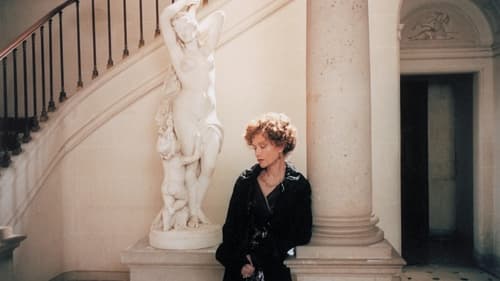
Producer
Wealthy but arrogant writer Jean Hervey comes home one day to find that his wife, Gabrielle, has left him for another man. Realizing her mistake, Gabrielle returns, and the pair begin a merciless analysis of their marriage as the relationship comes undone.

Screenplay
Wealthy but arrogant writer Jean Hervey comes home one day to find that his wife, Gabrielle, has left him for another man. Realizing her mistake, Gabrielle returns, and the pair begin a merciless analysis of their marriage as the relationship comes undone.

Stage Director
Der Ring des Nibelungen (The Ring of the Nibelung) is a cycle of four epic operas (or "dramas" to use the composer's preferred term) by the German composer Richard Wagner (1813–83). The works are based loosely on characters from the Norse sagas and the Nibelungenlied. The four dramas, which the composer described as a trilogy with a Vorabend ("preliminary evening"), are often referred to as the Ring Cycle, Wagner's Ring, or simply the Ring. Wagner wrote the libretto and music over the course of about twenty-six years, from 1848 to 1874. The four operas that constitute the Ring cycle are, in sequence: Das Rheingold (The Rhine Gold) Die Walküre (The Valkyrie) Siegfried Götterdämmerung (Twilight of the Gods) Although individual operas of the sequence are sometimes performed separately, Wagner intended them to be performed in series.

Director
Wealthy but arrogant writer Jean Hervey comes home one day to find that his wife, Gabrielle, has left him for another man. Realizing her mistake, Gabrielle returns, and the pair begin a merciless analysis of their marriage as the relationship comes undone.

Stage Director
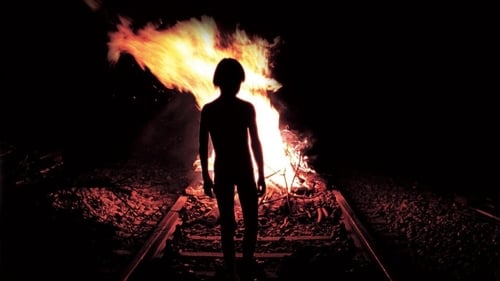
Thomas Brandt
When Anna and her family arrive at their holiday home, they find it occupied by strangers. This confrontation is just the beginning of a painful learning process.
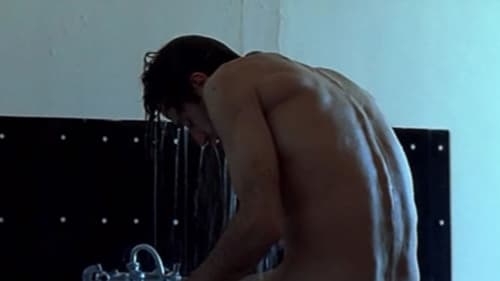
Screenplay
Thomas has been estranged from his brother Luc for several years, due in part to his difficulties in dealing with Luc's homosexuality. But when Thomas is diagnosed with a rare blood disease, which is difficult to treat and impossible to cure, he decides he wants to bring Luc back into his life. The brothers soon become inseparable, and their new relationship begins to alienate their significant others.

Director
Thomas has been estranged from his brother Luc for several years, due in part to his difficulties in dealing with Luc's homosexuality. But when Thomas is diagnosed with a rare blood disease, which is difficult to treat and impossible to cure, he decides he wants to bring Luc back into his life. The brothers soon become inseparable, and their new relationship begins to alienate their significant others.

Self
"Homosexuality, this painful problem "... It was thirty years ago, the title of a program of Ménie Grégoire! But what has happened since the seventies, when France was transformed and the gay movement emerged? For gays and lesbians, thirty years of fights, hopes and despairs, thirty years of parties, sufferings and mournings, victories and emancipation. Thirty revolutionary years, pink and black, on which Yves Jeuland has examined, in an approach that is at once documentary, historian and ethnographer. First part: "Red years" (1971/1979) "Pink years" (1979/1984) Second part "Black years" (1983/1991) "Rainbow years" (1992/2002)

Pierre
People and life can be cruel, and in their face, Fannette is cool: toward an old acquaintance, to her daughter, to colleagues. Beneath the surface, she roils with passion for a lost love, Philippe. She watches "An Affair to Remember" again and again, and when she receives a letter from Philippe asking her to meet him atop the Empire State Building, she swoons. She's writing a book on an aged painter, so she organizes a trip to New York ostensibly to secure photographs of some of his pieces. The publisher assigns her a photographer, Matt, on the surface spontaneous and flip, but also aggressive about his attraction to her. Will she be with the one she loves? Will she smile? Written by
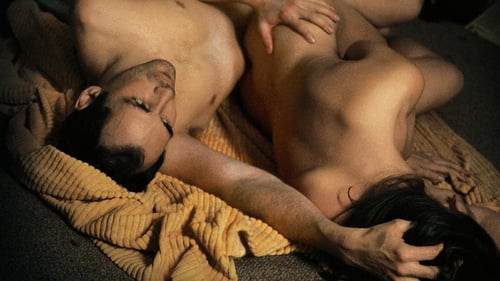
Screenplay
Jay, a failed musician, walked out of his family and now earns a living as head bartender in a trendy London pub. Every Wednesday afternoon a woman comes to his house for graphic, almost wordless, sex. One day Jay follows her and finds out about the rest of her life (and that her name is Claire). This eventually disrupts their relationship.

Director
Jay, a failed musician, walked out of his family and now earns a living as head bartender in a trendy London pub. Every Wednesday afternoon a woman comes to his house for graphic, almost wordless, sex. One day Jay follows her and finds out about the rest of her life (and that her name is Claire). This eventually disrupts their relationship.

Screenplay
Friends of a recently painter Jean-Baptiste Emmerich gather at a Paris railroad station for a four-hour journey to Limoges, where Emmerich wanted to be buried. The dozen travelers include art historian François and his lover Louis, who develops an interest in Bruno, whom he meets on a train. Traveling parallel with the train is a station wagon with Jean-Baptiste's body, and this vehicle is driven by Thierry, husband of Catherine, who's on the train with their daughter. François plays a taped interview with Jean-Baptiste, revealing his sexual appeal to both men and women. Lucie is convinced that she was his main love. Also on board is his nephew, Jean-Marie and Jean-Marie's estranged wife Claire. After the funeral in "Europe's largest cemetery," the story continues in the mansion of Jean-Baptiste's brother Lucien.

Director
Friends of a recently painter Jean-Baptiste Emmerich gather at a Paris railroad station for a four-hour journey to Limoges, where Emmerich wanted to be buried. The dozen travelers include art historian François and his lover Louis, who develops an interest in Bruno, whom he meets on a train. Traveling parallel with the train is a station wagon with Jean-Baptiste's body, and this vehicle is driven by Thierry, husband of Catherine, who's on the train with their daughter. François plays a taped interview with Jean-Baptiste, revealing his sexual appeal to both men and women. Lucie is convinced that she was his main love. Also on board is his nephew, Jean-Marie and Jean-Marie's estranged wife Claire. After the funeral in "Europe's largest cemetery," the story continues in the mansion of Jean-Baptiste's brother Lucien.

Director
A rat is subjected to a gene-splicing experiment that yields surprising results.
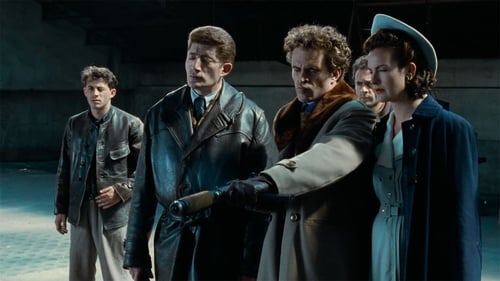
Jean Moulin
A love story or a tale of the resistance, this poignant movie tells both the haunting story of a French resistance cell in Lyon but also the love of Lucie Aubrac for her husband...

Self
A look at the entire process of creating and developing Patrice Chéreau’s third staging of "In the Solitude of Cotton Fields" by Bernard Marie Koltès with Pascal Greggory and Chéreau himself. From the first reading around the table through the first contact with the performance space, rehearsals and lighting to opening night, the entire creative process unfurls in front of our eyes. The film shows us the evolving and ongoing dialogue between Greggory and Chéreau, a dialogue full of crises and magical moments of harmony and insight via which the truth, intensity, complexity, mystery and depth of Koltès’ text gradually emerge to form an implicit bond between these two men. The film also shows Chéreau directing rehearsals for Mozart’s "Don Giovanni" in Salzburg, revealing both the unity of and profound differences between his opera and theater work.

Producer
A look at the entire process of creating and developing Patrice Chéreau’s third staging of "In the Solitude of Cotton Fields" by Bernard Marie Koltès with Pascal Greggory and Chéreau himself. From the first reading around the table through the first contact with the performance space, rehearsals and lighting to opening night, the entire creative process unfurls in front of our eyes. The film shows us the evolving and ongoing dialogue between Greggory and Chéreau, a dialogue full of crises and magical moments of harmony and insight via which the truth, intensity, complexity, mystery and depth of Koltès’ text gradually emerge to form an implicit bond between these two men. The film also shows Chéreau directing rehearsals for Mozart’s "Don Giovanni" in Salzburg, revealing both the unity of and profound differences between his opera and theater work.
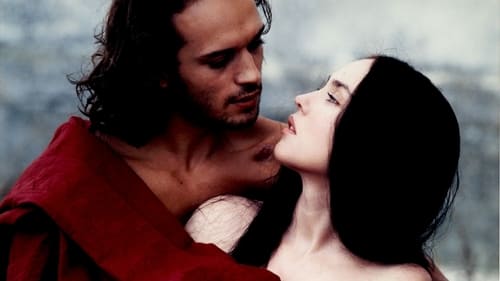
Adaptation
16世紀フランス、摂政のカトリーヌは対立するカトリックとプロテスタントを和解させるため、娘マルゴを政略結婚させる。文豪デュマ原作の小説をパトリス・シェローが監督した歴史大作。

Screenplay
16世紀フランス、摂政のカトリーヌは対立するカトリックとプロテスタントを和解させるため、娘マルゴを政略結婚させる。文豪デュマ原作の小説をパトリス・シェローが監督した歴史大作。

Director
16世紀フランス、摂政のカトリーヌは対立するカトリックとプロテスタントを和解させるため、娘マルゴを政略結婚させる。文豪デュマ原作の小説をパトリス・シェローが監督した歴史大作。

Director
Franz Woyzeck, a lowly soldier stationed in a mid-nineteenth century provincial German town, is the father of an illegitimate child by his mistress Marie.
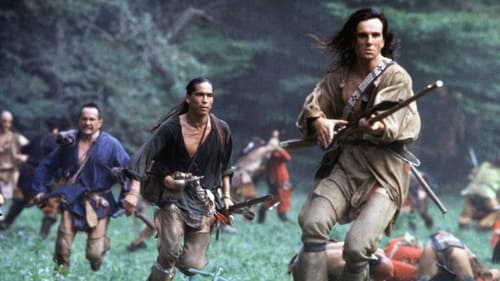
General Montcalm
ヨーロッパ人による植民地戦争が激化する18世紀半ばの建国直前の新大陸アメリカを舞台に、インディアンに育てられた白人青年の愛と友情を描く。ジェイムズ・G.ロビンソンの小説をマイケル・マン監督が映像化した感動作。

Director
Contre l'Oubli (Against Oblivion) is a compilation of 30 French filmmakers, Alain Resnais and Jean Luc Godard among them, who use film to make a plea on behalf of a political prisoner. Jean Luc Godard and Anne Marie Mieville's film concerns the plight of Thomas Wanggai, West Papuan activist who has since died in prison. The short films were commissioned by Amnesty International.
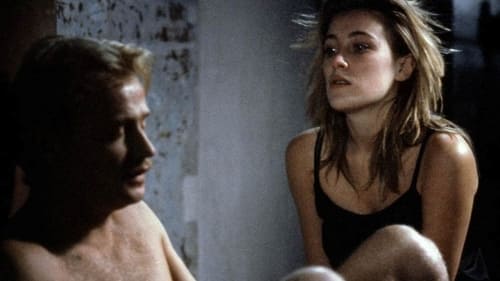
Screenplay
A French family is shown as they go through the daily routines of life. Arguing, feasting, crying, and yearning for love are just some of the human emotions encountered. The mood wavers between excessive noise to silence while those not participating in the conversations eavesdrop.

Director
A French family is shown as they go through the daily routines of life. Arguing, feasting, crying, and yearning for love are just some of the human emotions encountered. The mood wavers between excessive noise to silence while those not participating in the conversations eavesdrop.

Self
The work of legendary actor François Simon, son of Michel Simon.
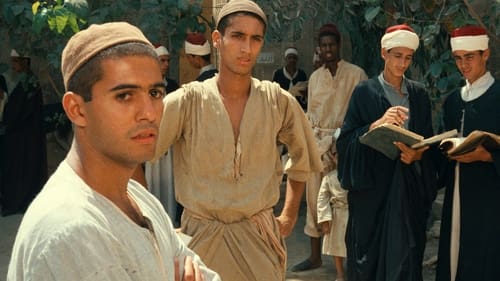
Napoléon Bonaparte
This big-budget historical epic from acclaimed Egyptian director Youssef Chahine features a crazed turn by Patrice Chereau as Napoleon Bonaparte. The film, an Egyptian-French co-production, deals with Napoleon's occupation of Alexandria and its effect on a typical Egyptian family. Michel Piccoli leads the cast as a general in Napoleon's army who tentatively befriends a local poet.
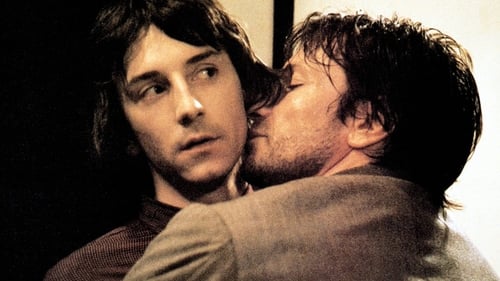
Screenplay
Henri is a lonely, isolated young man who lets no one get close to him. He meets a street hustler and comes out of his shell, going 180 degrees into gay obsession. Though he has yet to physically approach the object of his affection, Henri builds up so much unrequited lust that it explodes with horrible results.

Director
Henri is a lonely, isolated young man who lets no one get close to him. He meets a street hustler and comes out of his shell, going 180 degrees into gay obsession. Though he has yet to physically approach the object of his affection, Henri builds up so much unrequited lust that it explodes with horrible results.
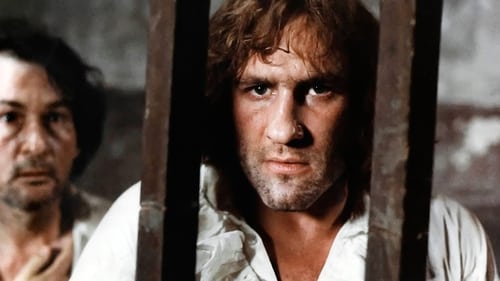
Camille Desmoulins
Danton and Robespierre were close friends and fought together in the French Revolution, but by 1793 Robespierre was France's ruler, determined to wipe out opposition with a series of mass executions that became known as the Reign of Terror. Danton, well known as a spokesman of the people, had been living in relative solitude in the French countryside, but he returned to Paris to challenge Robespierre's violent rule and call for the people to demand their rights. Robespierre, however, could not accept such a challenge, even from a friend and colleague, and he blocked out a plan for the capture and execution of Danton and his allies.

Stage Director
Götterdämmerung, the fourth of Richard Wagner's four Ring operas. The cast features Manfred Jung as Siegfried and Gwyneth Jones as Brünnhilde, with music provided by Bayreuther Festspiele Orchester conducted by Pierre Boulez. This title is available in a boxed set with the other Ring operas, Das Rheingold, Die Walküre, and Siegfried.

Stage Director
The third opera in Richard Wagner's epic Ring cycle, Siegfried follows the adventures of the son of demigods Siegmund and Sieglinde as he conquers his enemies and rescues the beauteous Brunnhilde with the help of his magic sword. This video preserves the controversial 1976 Bayreuth Centenary production, with Pierre Boulez leading the Bayreuth Festival Orchestra. Manfred Jung leads the cast as Siegfried, with Gwyneth Jones as Brunnhilde, Donald McIntyre as the Wanderer, and Hermann Becht as Alberich.

Stage Director
The second part of Patrice Chérau's epoch-making Bayreuth Ring is a radical re-imagining of Die Walküre, unprecedented in its psychological penetration. This production of " Die Walkure," staged as part of Patrice Chereau's Centenary celebration marking the 100th anniversary of the completion of the "Ring," this lavish performance features Donald McIntyre as Wotan, Peter Hofmann as Siegmund, and Gweneth Jones as Brunnhilde; Pierre Boulez conducts the Orchester Der Bayreuther Festspiel.

Stage Director
This is a beautifully conducted and thoughtfully staged performance of the first opera (the prologue) in Wagner's Ring Cycle. As soon as the clouds of mist have dissipated, while the daring, long-held opening chord is still reverberating, the screen clears to show not only the River Rhine and the three maidens (dressed like prostitutes in this production) assigned to guard the gold hidden there. It also shows an enormous dam (not mentioned in Wagner's text). This is the underwater base of a hydroelectric plant, and its presence tells us two things immediately: that this production takes the story out of the vaguely medieval fantasy world in which Wagner had placed it, and that a basic theme of the four-opera cycle would be power. Alberich, the Nibelung, is willing to renounce the love of women, after stealing the gold from the Rhine, to become the ruler of the world. Another basic theme is greed.
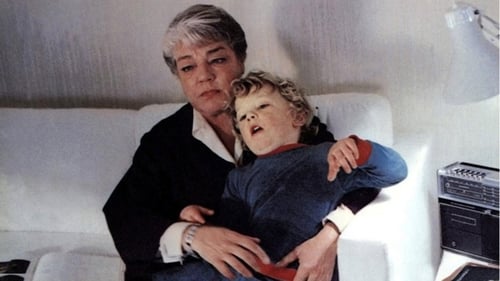
Screenplay
When her old resistance buddies come to her looking for someone to helm a financially troubled liberal newspaper, Judith (Simone Signoret) is at first reluctant, but for this old hero of the French anti-Nazi resistance, challenges are hard to ignore. She takes on the job, mortgaging her house to keep the paper solvent. When things take a turn for the worse, because of concerted opposition by conservative forces, she is forced to sell the paper, and she regards this as a personal failure.

Director
When her old resistance buddies come to her looking for someone to helm a financially troubled liberal newspaper, Judith (Simone Signoret) is at first reluctant, but for this old hero of the French anti-Nazi resistance, challenges are hard to ignore. She takes on the job, mortgaging her house to keep the paper solvent. When things take a turn for the worse, because of concerted opposition by conservative forces, she is forced to sell the paper, and she regards this as a personal failure.
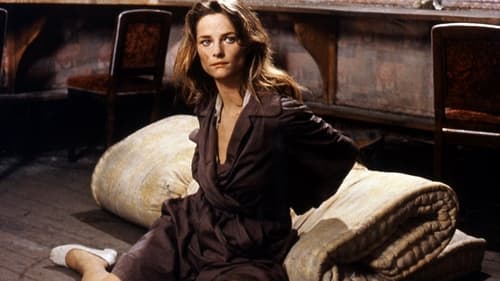
Screenplay
A disturbed young woman is kept prisoner in a castle by her aunt for her money. The game-keeper, her guardian, tries to rape her but she escapes. In her flight she meets a man also running away, from two killers.

Director
A disturbed young woman is kept prisoner in a castle by her aunt for her money. The game-keeper, her guardian, tries to rape her but she escapes. In her flight she meets a man also running away, from two killers.

Story of the life of an extraordinary man, who with Lenin, was the symbol of the Revolution of 1917.

Stage Director











































